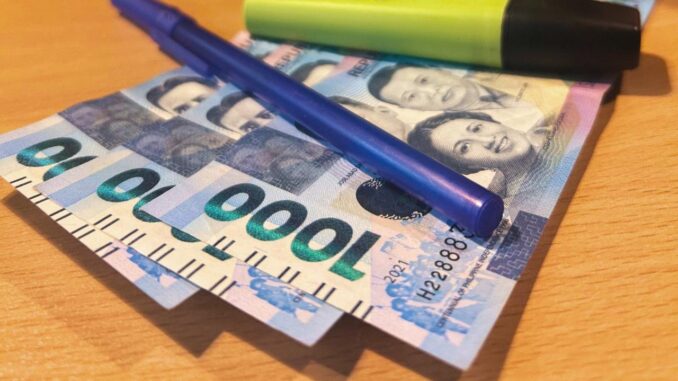
Ah, the age-old question: Can money buy happiness? While the question is simple, the answer is far from straightforward.
“Happiness” itself is difficult to define and varies from person to person, and when you factor in things like the cost of living and cultural differences, it becomes even more challenging to quantify.
Is there a price tag for a Filipino’s happiness?
Several studies have attempted to put a number on happiness. One such study by Purdue University explored whether happiness continues to rise indefinitely with income. The research found that people in the United States needed $105,000 annually, or a little over P6,000,000 to achieve happiness.
Consumer website Expensivity took this a step further by contextualizing the findings. Using Purdue’s estimates, they calculated the “price of happiness” for countries worldwide, factoring in purchasing power from the World Bank and cost of living.
According to their data, Filipinos need $28,264 yearly, or about P130,000 per month, to be happy. This amount is nearly a third of the average annual family income, based on the latest figures from the Philippine Statistics Authority.
“I don’t think we need to put too much weight on US studies of money and happiness since their context is very different,” said Dr. Anna Cristina Tuazon, associate professor at the Department of Psychology, UP Diliman.
“Our reality is that most Filipinos struggle financially due to high cost of living and very low wages. Even the middle class struggles with food and utility costs, not to mention travel costs,” she added.
The figures may not accurately reflect the realities of the Philippines. According to a study, 7 out of 10 Filipinos are struggling to handle their finances and loan problems, making the Philippines the most stressed nation when it comes to managing household finances.
The desire for financial stability remains a strong motivator for many, as many hope to improve their quality of life and pursue happiness.
Revisiting the hierarchy of needs
To better understand human motivations and what drives happiness, let’s revisit one of the most well-known motivational theories: Maslow’s Hierarchy of Needs.
American psychologist Abraham Maslow, who proposed this theory, sought to understand what makes humans happy. He believed that everyone has an innate desire to achieve their full potential, but they must first meet a set of basic needs to reach this ultimate goal—and these needs must be fulfilled in a hierarchical order, from the most fundamental to the most advanced.
The theory is represented as a pyramid with five levels, starting from the bottom: physiological, safety and security, love and belonging, esteem, and self-actualization. Maslow argued individuals cannot achieve higher-level needs until the lower-level needs are fulfilled.
With this model in mind, it’s easy to see why many Filipinos may struggle with happiness. With most of the population falling into low-income (58.4%) and middle-class (40%) brackets, most people are focused on meeting basic needs, with little left to address higher-level aspirations.
“Our average wage is around P18,000, so we have a long way to go before money no longer contributes to life satisfaction/happiness. Money alone is not a guarantee for happiness, but for Filipinos, it goes a long way,” said Dr. Anna.
“In principle, money can take away pain points in living by removing undue hardship and suffering in day-to-day life. Only once we feel secure that we can meet our basic needs can we turn our attention to other needs,” Dr. Anna explained.
Money solves many miseries…But Not All
When we view money through the lens of Maslow’s hierarchy of needs, we see money itself doesn’t directly make us happy—it’s not even in the pyramid!
But what money can afford us—a comfortable life, food on the table, guilt-free vacations, and the ability to pursue hobbies—enriches our experience at every level, from basic survival needs to personal growth.
“Can money make a person happy? If we’re talking about sparking joy or creating memorable moments, then yes! Money can buy things that bring us temporary happiness,” said Val Baguios III, Organizational Leadership Coach/Consultant.
“Just today, I bought my wife a bracelet—it cost money, and it made her smile. Money is a useful tool for meeting our needs and creating positive emotions. But I’ve seen, both in my life and in the leaders I coach, that happiness from money is fleeting. True and lasting well-being comes from nurturing the most important relationships in our lives. It’s through these connections, not just material things, that sustainable happiness is built.”
A joint study by researchers from Princeton University and the University of Pennsylvania found that, on average, larger incomes are linked to ever-increasing levels of happiness—except for a small group, about 15%, where happiness plateaus between $60,000 and $90,000 annually.
For this group, higher income doesn’t significantly improve happiness. The authors explained that this income threshold may represent the point beyond which remaining miseries—such as bereavement or heartbreak—are not alleviated by wealth. As one lead author succinctly put it, “If you’re rich and miserable, more money won’t help.”
The author also noted that money is just one of many factors contributing to happiness: “Money is not the secret to happiness, but it can probably help a bit,” he added.
While money alone may not guarantee happiness, it provides the stability and security needed to navigate life’s uncertainties—such as job loss or illness. It helps us meet basic needs and pursue personal goals, which can lead to happiness. In this way, money may not directly make us happy, but it enables us to achieve the things that do.
— LA, GMA Integrated News


Be the first to comment